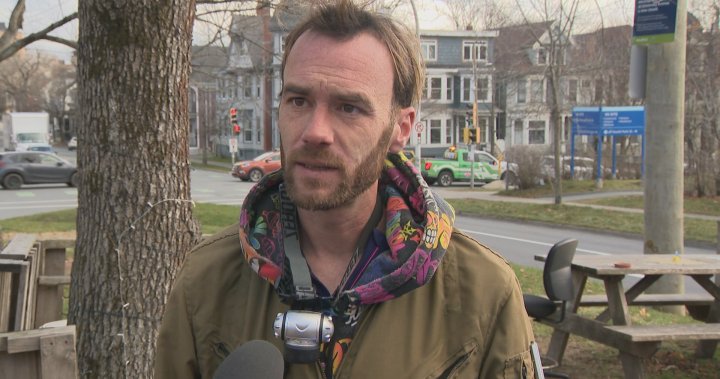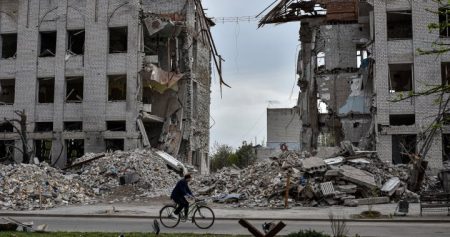The city of Halifax has initiated the dismantling of a tent encampment on University Avenue, which had been a designated site for unhoused individuals until September due to safety concerns regarding snow removal. Despite efforts from municipal outreach workers to relocate residents to indoor shelters and other housing options since November 1, at least one resident, Andrew Goodsell, is determined to remain. Goodsell, a long-time Halifax resident who has faced homelessness multiple times, expressed frustration over the lack of adequate support and the municipal response to the encampment situation. As municipal crews arrived with heavy machinery, he was taken by surprise and emphasized his commitment to finding a dignified living arrangement amidst the chaos.
Goodsell’s experience reflects broader issues faced by many unhoused individuals in Halifax, particularly as winter sets in. He criticized the municipality for what he perceives as a superficial response to homelessness, where actions are taken to create the appearance of progress without addressing underlying needs. His role as an advocate for unhoused individuals was also highlighted during his recent run for mayor, where he aimed to raise awareness about the living conditions of individuals in similar situations. Goodsell’s concerns come at a time when he and other residents feel abandoned yet pressured to comply with municipal regulations, leaving them vulnerable in the harsh winter conditions.
Adding complexity to the situation, there is a stark absence of shelter options for males, as highlighted by Max Chauvin, director of Housing and Homelessness for the municipality. This shortage of shelter beds contributes significantly to the challenges faced by the unhoused population. While some beds are available for women, the scarcity for men underlines systemic issues within the housing assistance framework. Acknowledging the hardships faced by those remaining at the encampment, Chauvin suggested moving residents to another designated location, although this still necessitates outdoor sheltering in the winter months, which is fraught with risk.
Halifax city council’s recent decisions also underscore the contentious nature of the encampment situation. Newly-elected Mayor Andy Fillmore proposed scrapping a list of nine pre-designated encampment sites, arguing that tents are not a sustainable solution for the unhoused population. However, council members who opposed this motion highlighted the reality that many individuals are forced to live outside due to a lack of viable alternatives, creating a critical and ongoing dilemma for the city. Councillor Sam Austin specifically pointed out that immediate action is required to address the needs of these individuals rather than prematurely dismissing available encampment options.
The by-name list registry reveals that approximately 1,300 people in Halifax are unhoused, underlining the urgency of the situation. Reports indicate that across five designated encampment sites, there are currently 62 tents and three trailers in use. The broader implications of this crisis extend beyond mere numbers; they evoke deep social questions about how municipalities prioritize their responses to homelessness and support their most vulnerable populations. The absence of comprehensive shelters and the lack of adequate resources for homeless individuals are evident in the city’s current strategies.
As municipal crews continue their work, the future for the remaining encampment residents like Goodsell remains uncertain. The interplay between local government actions, public perceptions, and the realities faced by unhoused individuals raises troubling questions about the adequacy of the current systems in place. Goodsell’s commitment to remain at the encampment amid mounting pressures symbolizes the desperate plight of many in Halifax struggling to find stability and dignity in their living conditions. The Canadian winter presents significant challenges for those living outdoors, revealing the pressing need for more effective housing solutions and compassionate outreach efforts to support those affected by homelessness.










